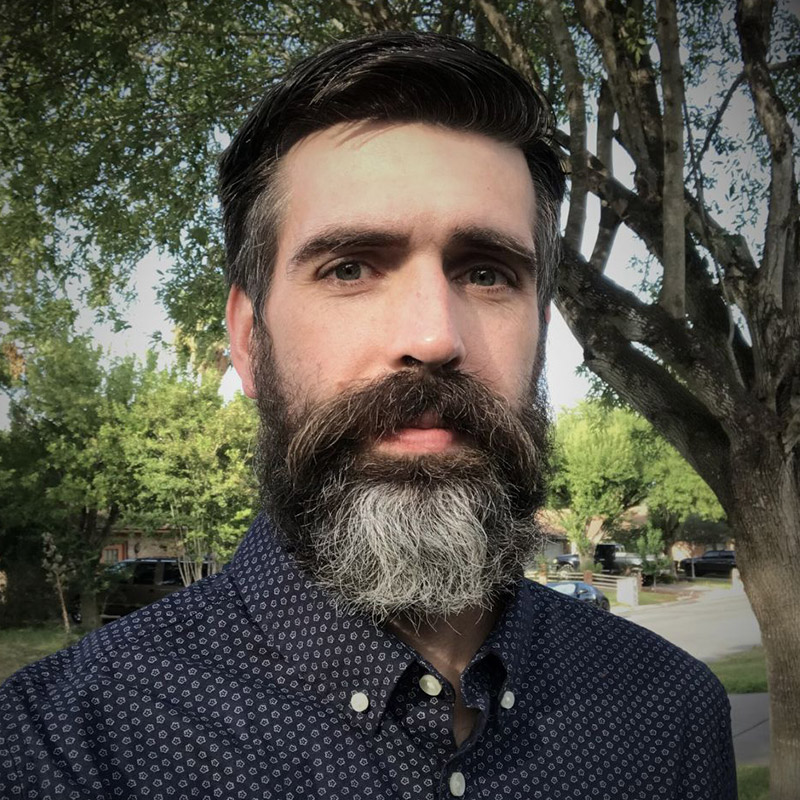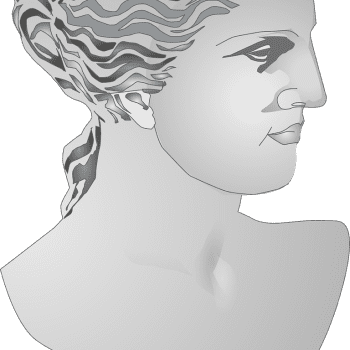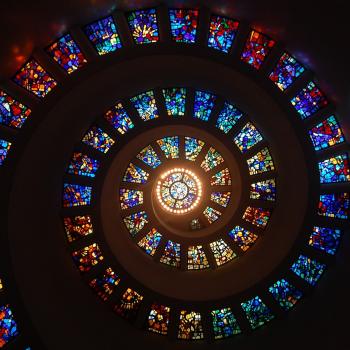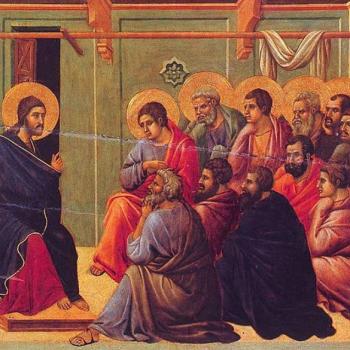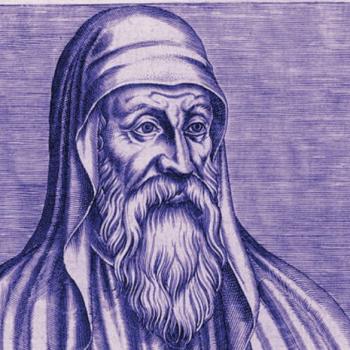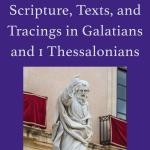The Apostles’ Creed is a confident statement of true Christian faith. Such confidence feels outdated in an age of skepticism. How can I actually say “I believe” and mean it in 2023?
[This article is Part 2 of a series on the Apostles’ Creed. Part 1 of this series looks at the role of the Apostles’ Creed in early Christianity, and my intentions to use it to prove to my YouTube audience that I’m not a heretic.]

Do “I Believe”?
The Apostle’s Creed begins with “I believe…”
Belief is already a tough one for a recovering-Evangelical-turned-Christian-mystic in 2023. In the post-Enlightenment West, belief is all about the intellect: is there enough unbiased, testable evidence to convince my mind that a proposition is reasonable? If yes, I believe. If not, I have my doubts.
This kind of head-agreement is not at all what the New Testament or the Apostles Creed means by belief. The early church developed the creeds while under persecution. Many of the baptismal candidates risked their lives when they said “I believe.” Faith was more like “faithfulness” in the “forsaking all others until death do us part” marriage-sense. Belief for ancient people was a commitment to a way of life (and possibly death). Belief went far beyond thought or feeling or available evidence. Faith was a blood oath, based on trust.
If I believe in 2023, my faith isn’t much compared to the faith of my spiritual ancestors.
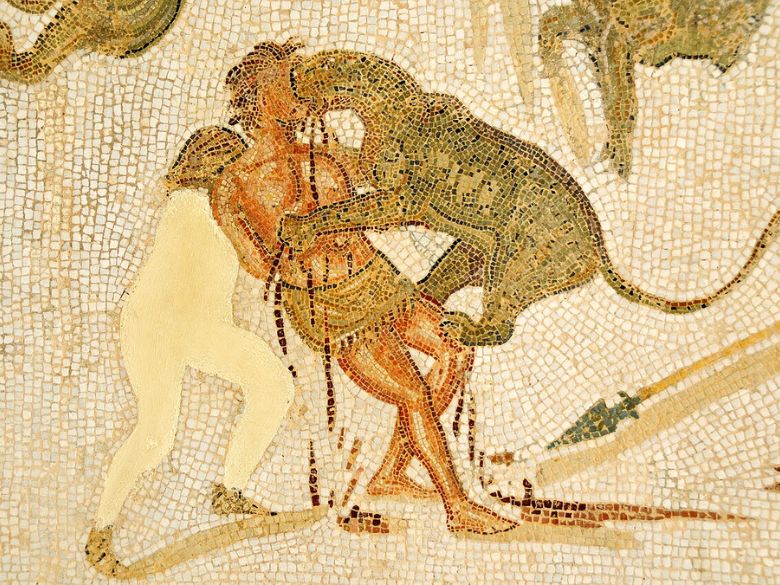
True Faith in 300 AD
What would bring a man to declare “I believe” in the face of persecution and even death? In his book The Apostles’ Creed in Light of Today’s Questions, German theologian Wolfhart Pannenberg argues that certain conditions have to be met for such commitment to exist:
- I need external, visible indications that my faith is well-founded. For the early church, these conditions were, broadly, the existence of the created universe and, specifically, the life, death, and resurrection of Jesus.
- I need a sense of an invisible reality toward which my trust is directed. For the early church, this invisible reality was the care and protection of God the Father, the living presence of the risen Christ, and the transforming power of the Holy Spirit within and among them, which they felt.
- I need a future hope that is worth the risk of faith. For the early church, the hope was forgiveness of sins, resurrection from the dead, a new heaven and earth, and eternal life with God.
The way we think about faith in our place and time, it’s hard to imagine how someone could lay down their life for a religious idea. Uncertainty is hip, and most of us freely admit at least a little doubt about the precepts of our faith.
But under persecution, our spiritual ancestors were told to deny everything they knew to be true about the world, all of their deepest internal experiences, and all of their hope for an eternal future. What is life really worth without these things? Many chose death and personal integrity over life without conviction, because that is what faith meant to them.
Faith, Doubt, and Despair in 2023
Conditions are different in our time, but we still have the same needs. We have to believe in a good future that is both grounded in reality as we know it and inspired by possibilities beyond our direct experience. Pannenberg writes,
“In face of the uncertainty of human life and the doubt as to whether life has any meaning at all… people are generally prepared… to risk trust of this kind somewhere, in spite of all uncertainty and doubt.”
The only other option is despair. Perhaps this is why despair is so rampant in our society: we cannot meet the first condition for faith.
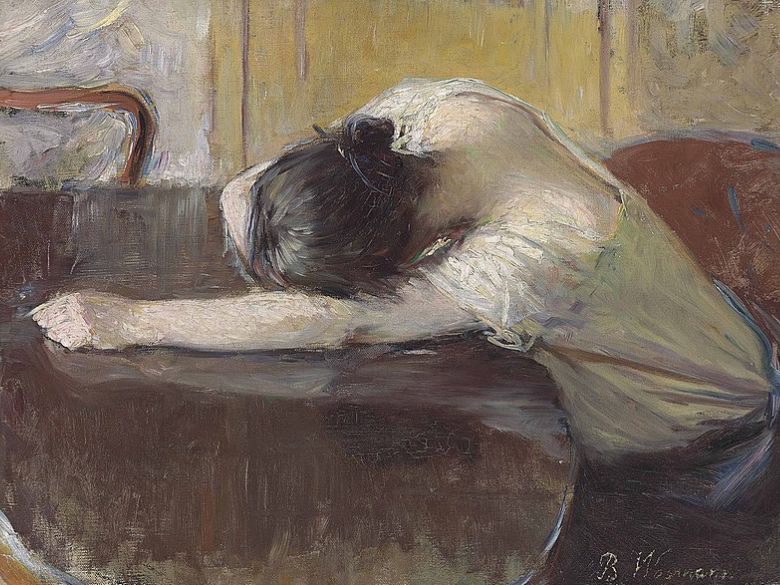
The external evidence, transmitted through ubiquitous LED rectangles, is that things are bad and getting worse. We are bombarded by reports about why the things we love (Christianity included) are actually bad. Nothing is certain, nothing is safe, nothing is true, nothing is knowable. We are not allowed to have confidence that God created the universe or that Jesus lived, died, and rose again. Without confidence in the basic, tangible foundation of our faith, how could we ever move on to such intangibles as God’s invisible presence or positive hope for our future?
Recovering True Faith Today
To reclaim real faith in our time, we have to move beyond the head-agreement, doctrinal statement version of it. We need something like the radical, do-or-die promises that our spiritual ancestors made before baptism or the execution squad. We need to embrace the risk of faith. Pannenberg writes:
“No mere knowledge of the object of faith is capable of gaining a part in the saving event; that belongs to faith alone. For only in the act of faith do I forsake myself in order to anchor myself in the reality in which I trust. In this act of trust, faith goes beyond its own criteria… laying itself open to a new and better knowledge of the truth on which it relies.”
In other words, to have authentic faith we need to push beyond what we know or feel, and learn to trust God. Real faith comes by having faith and acting on it.
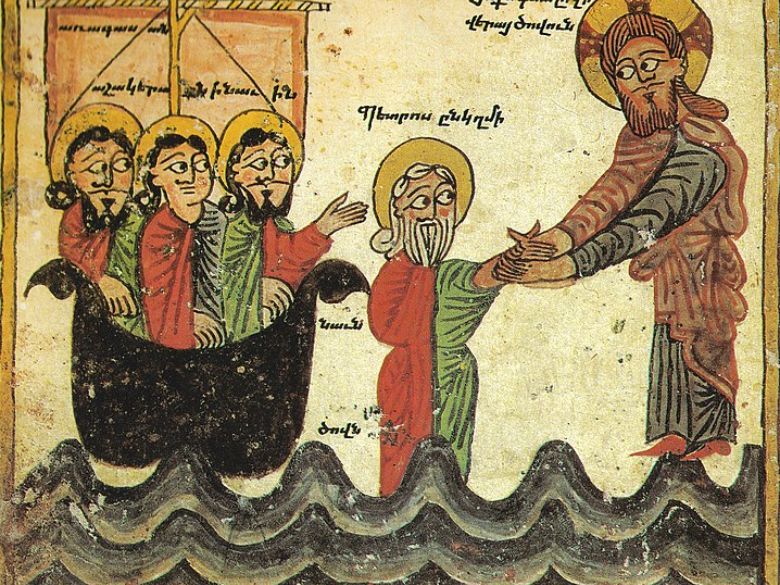
Faith should always have a sense of experimentation. We lay down our nets and follow to see where this is going. We step out on the water to see if we can walk on the waves. We carry our cross up the hill to see if God is really Lord of life and death.
It’s important to have reasonable confidence that the tenets of our faith are true. It’s important to have an inner experience of the presence of God and a positive future hope. But in our time, it feels like we’re waiting for faith to happen to us, not grabbing it with both hands and hanging on tight like the Christians who wrote the creeds.
So, Do “I Believe”?
Despite lifelong Christianity and a more recent, unshakable commitment to Christ, I don’t know if “I believe” the way the creed means it. In the shadow of the people who faced the cross or the lions for their faith, I feel very small and ashamed. They lost their heads for a hope they could not see. Most of the time, I can’t get out of my head long enough to entertain much hope about anything.
Self-styled intellectuals tend to brag about their existential uncertainty, but for me this is a confession: I need more evidence and more convincing. I need to check the Bible’s promises against studies and data. My faith trembles at new scientific discoveries. I don’t trust my inner experience of God’s presence because I know I am perfectly capable of deluding myself. I can connect the dots on the chart and see the downward trend in my life and in history. It’s hard to hope in things unseen when things that are seen are unraveling.
But I don’t think this makes me a heretic. My experience is much more akin to a desperate father who saw what Jesus could do, but hesitated when it came to his own situation (Mark 9:14-29).
To him Jesus said, “All things can be done for the one who believes.”
His reply is my reply most days, “I believe! But help my unbelief.”
I took science, history, and anthropology classes in university. My faith in the evidence for our faith is far from simple. I’ve studied the intersection of neuroscience and religion enough that I no longer trust my brain to tell me the truth about God’s presence in my life. In 2023, awash in the light of countless LED rectangles that declare our impending doom (Politicians! Pollution! Climate change! UFO’s!) my hope for the future wavers.
But I want to believe… so Lord, help my unbelief.
Check out my YouTube channel here, and please contact me through my website to sign up for my email list. My new book, Jesus: A Field Manual will be available for preorder soon. If you’re looking for help on your spiritual journey in today’s world, I think it will be a breath of fresh air. Thanks for reading!


